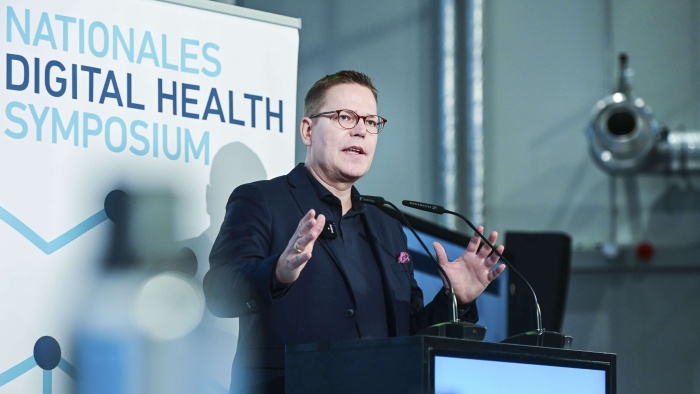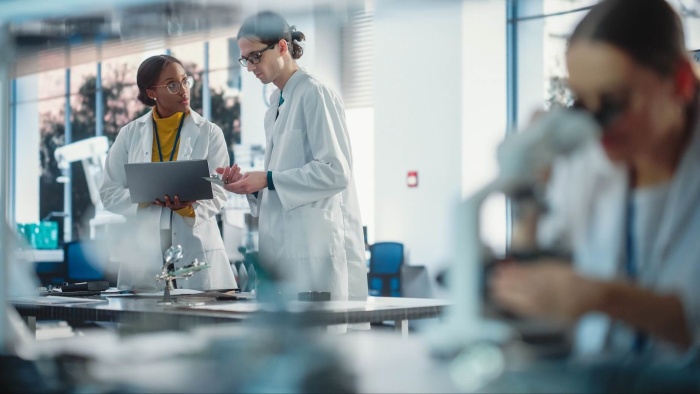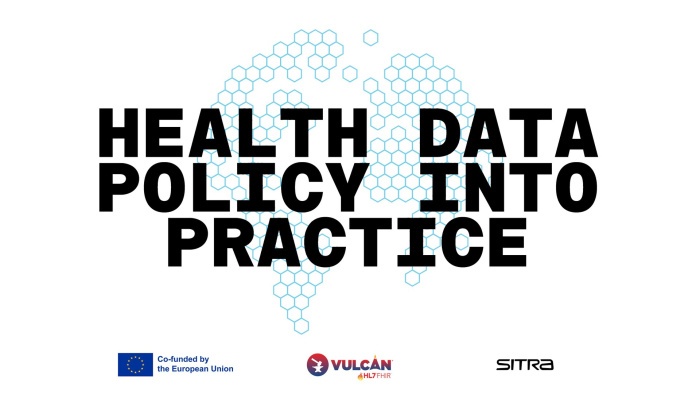15th TMF Annual Congress: Experts Call for Faster Translation of Innovations into Practice
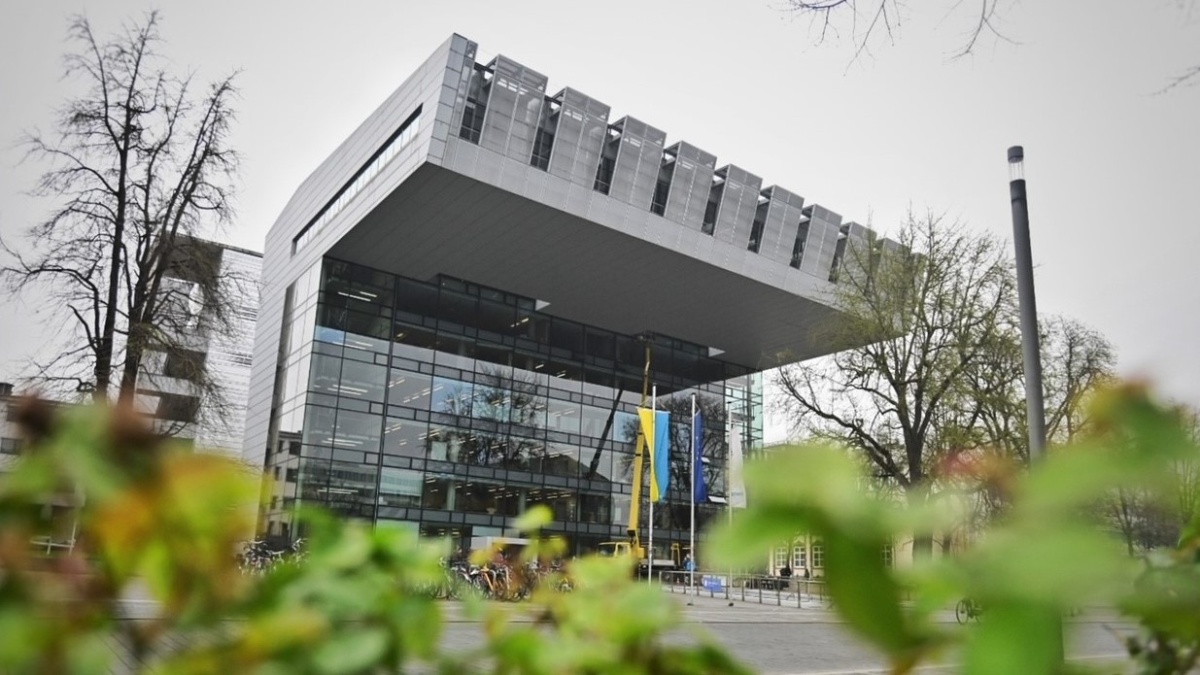
The 15th TMF Annual Congress focuses on the translation of medical innovations. © TMF
Aachen, March 21, 2024. The 15th Annual Congress of the Technology and Methods Platform for Networked Medical Research (TMF) has begun today in Aachen. Under the motto "Medical Innovations. First in Patient. First to Human.", the congress from March 21-22, 2024, brings together leading experts from biomedical research and health policy to discuss the challenges of translational medical research. The focus is on how medical innovations can be translated into clinical practice more quickly.
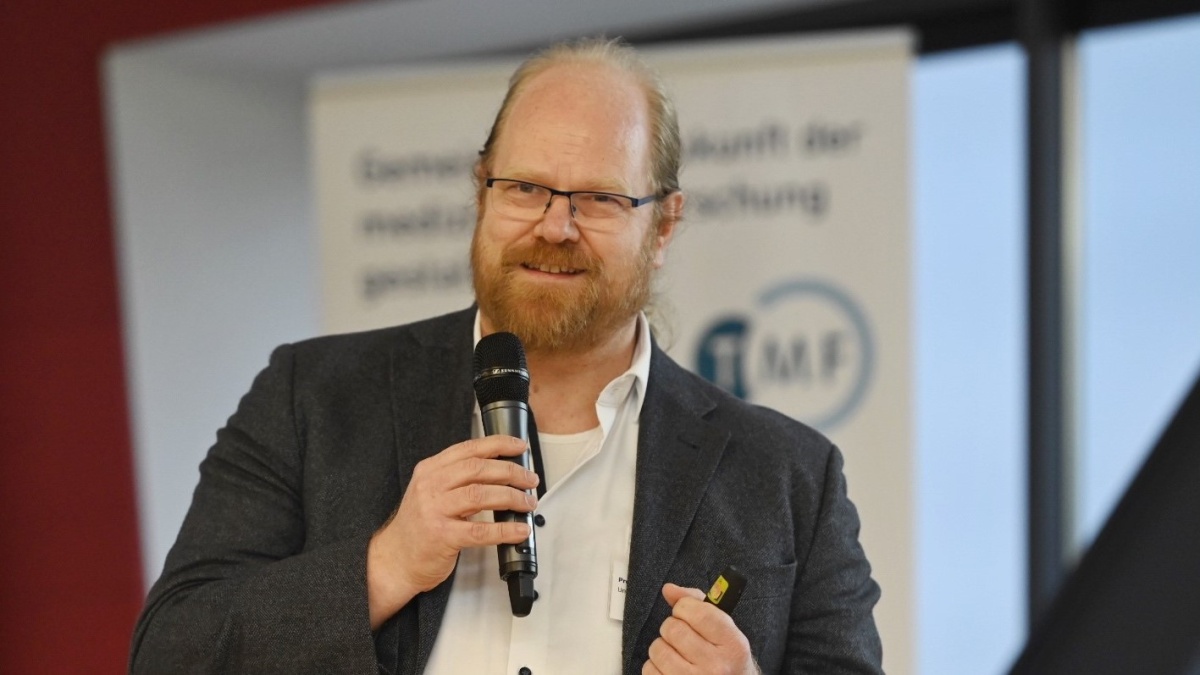
Prof Dr Rainer Röhrig, Congress President. © TMF
Molecular medicine offers numerous diagnostic possibilities to predict the effectiveness and tolerability of therapy. Biohybrid materials can improve the function and durability of implants, and digital assistants support physicians by providing targeted knowledge for diagnosis and therapy selection. These are just a few examples of how new technologies are entering medical practice and how the explosive growth of knowledge in science and research is being used to directly improve patient care. However, this requires a technical, organizational, and legal environment that enables and supports the translation of new technologies into clinical care.
Success Factors of Translation
"An important success factor for the translation of new products and technologies from research to medical application, in addition to interdisciplinary collaboration among experts, is a strong infrastructure for the secure and ethically acceptable handling of data," says Congress President Prof. Dr. Rainer Röhrig from the University Hospital RWTH Aachen. "In addition, financing and funding strategies are needed that adequately cover the costs of the projects as well as the maintenance of the required infrastructure." Keynote speaker Prof. Dr. Jochen Lennerz, Chief Scientific Officer of BostonGene, emphasizes "the importance of a balanced relationship between patient safety and the need for innovation in the translation of AI-based innovations. The significance of regulatory sciences will increase, and..."
... activities in the pre-competitive area can enable faster and harmonized innovation.
Harnessing the Potential of Artificial Intelligence
Among the recent technical developments, artificial intelligence (AI), in particular, has enormous potential to improve the diagnosis, treatment, and therapy of various diseases. For example, AI can help detect even the smallest tumors in medical images from MRI or CT scans. Using AI, so-called "Digital Twins," will allow individual predictions in the future, such as whether a medication will work for a patient and how it is absorbed, metabolized, distributed, metabolized, and excreted in the body. AI helps to plan surgeries faster and better by calculating and manufacturing implants and saw templates individually for each patient. "We must better utilize the knowledge contained in treatment data in the future to treat patients more precisely," demands Jun.-Prof. Dr.-Ing. Myriam Lipprandt from the University Hospital RWTH Aachen, who chairs the program committee of this year's TMF Annual Congress. With this knowledge, AI can also accelerate drug research by identifying promising drug candidates, assembling suitable patient groups, and determining the optimal dose through simulation of individual metabolism. "Patient safety is paramount in this regard," says Lipprandt, who is also the scientific director of the Translation Center at the University Hospital RWTH Aachen and spokesperson for the TMF Workgroup on Medical Software and Medical Product Law. "This begins with basic research: if results obtained there are to be tested on humans, we must set high standards for the planning, conduct, and documentation of our research from the outset. This is the indispensable basis for a reliable assessment of the safety and efficacy of innovations."
This requires a translation process and infrastructure that supports scientists in transferring their results from research to the clinic. Ensuring that medical knowledge reaches healthcare and, thus, people quickly is a central concern. "Translation must, therefore, be an integral part of the strategy of university medicine," says Lipprandt.
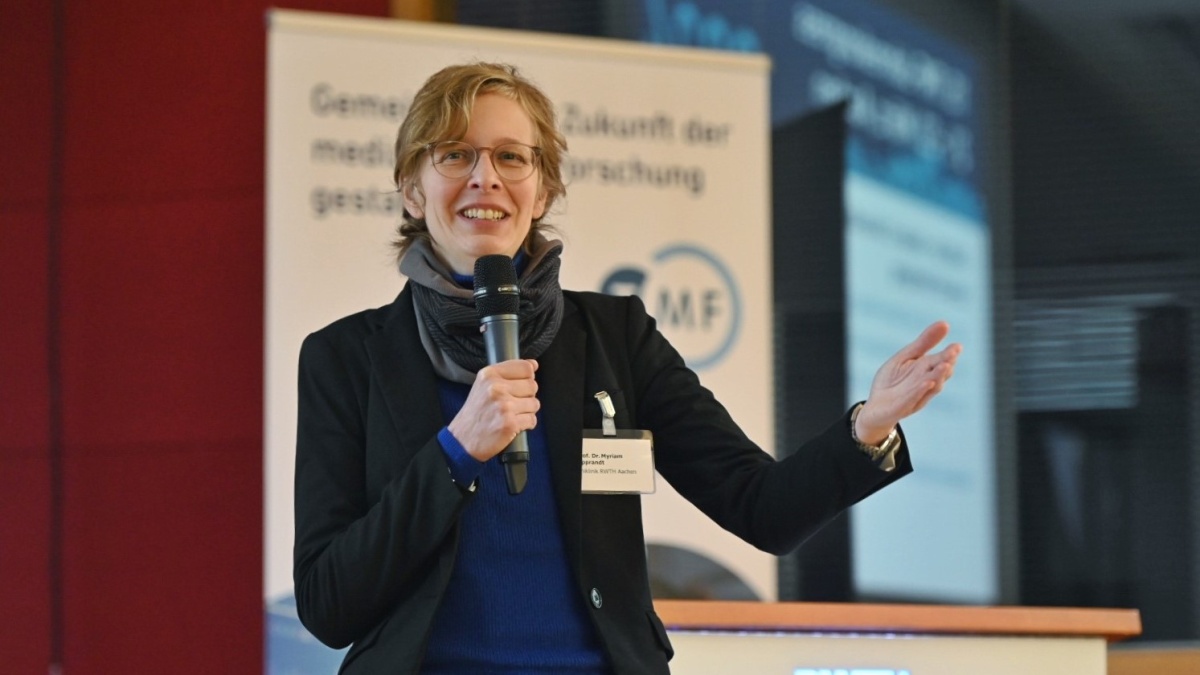
Jun.-Prof. Dr. Ing. Myriam Lipprandt, Head of the Program Committee. © TMF
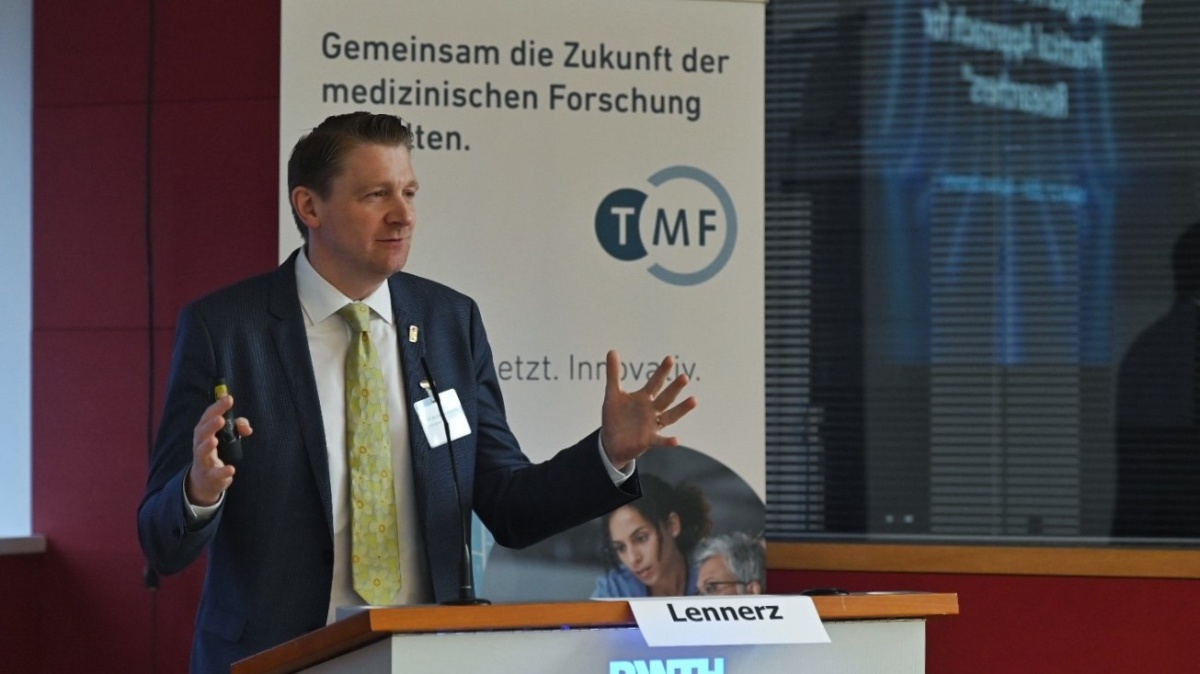
Prof Dr Jochen Lennerz, Chief Scientific Officer at BostonGene. © TMF
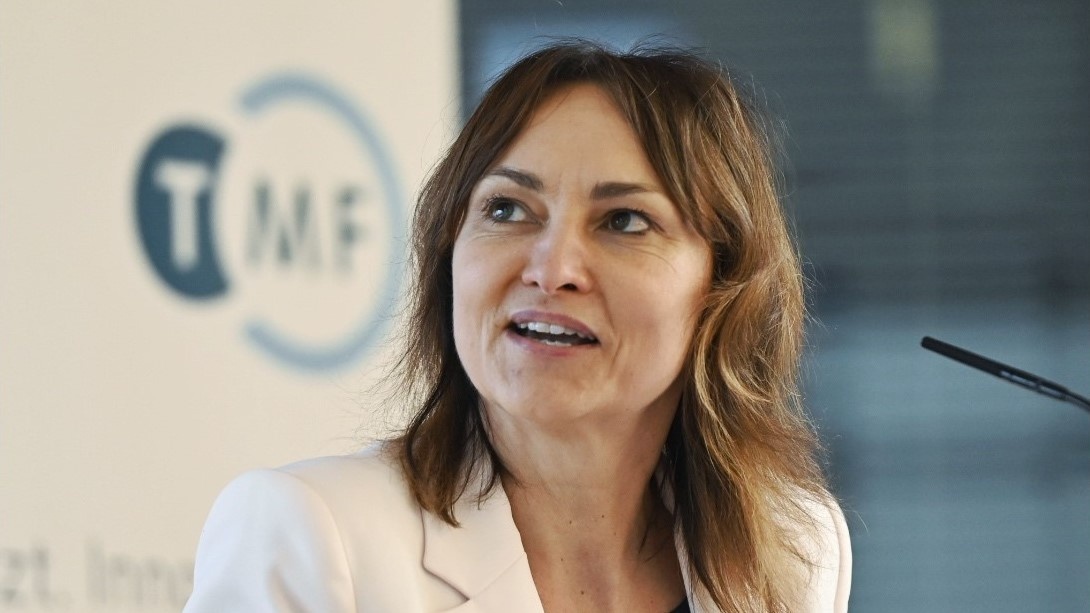
Ministerial councilor Jana Holland from the Federal Ministry of Health. © TMF
The opportunities of digitization can only be used for medical research and healthcare if high-quality patient data is available. Recently, especially on the political level, a lot has happened: "With the Health Data Usage Act, the Medical Research Act, the Research Data Act, and the Register Act, there has been such a dynamic in terms of the legal framework for patient-based research as I have not experienced in Germany in the last 25 years," Prof. Dr. Michael Krawczak from Christian-Albrechts-University Kiel, the soon leaving TMF Chairman, reflects. "Registers are to become a central pillar in the connected health data ecosystem through the forthcoming Register Act," says Ministerialrat Jana Holland from the Federal Ministry of Health at the congress. "In addition, just last week, there was the draft regulation on the model project on genome sequencing, the agreement on the European Health Data Space (EDHS), and the in-depth discussion of a European AI regulation," says Krawczak. However, Krawczak emphasizes that the research community should not only observe these developments but also actively shape them. "As scientists, we must be heard by politics and involved in shaping the legal framework of our work," concludes Krawczak. "For over two decades, the TMF has provided a proven platform for this."
Congress President and TMF board member Röhrig emphasizes the value of the substantive work of the TMF. "The TMF sees itself not only as a platform for exchange and a spokesperson vis-à-vis politics. Rather, the core of the activities are the topic-specific TMF workgroups. There, we use the knowledge collected by the research community to develop solutions that enable or simplify biomedical research. The results of the workgroups are made available to the community in the ToolPool Health Research or, as currently on the occasion of the annual congress in Aachen, in tutorials and presentations."
Further information on the 15th TMF Annual Congress and the program is available on the TMF website.
Press Contact
Wiebke Lesch
Tel .: +49 30 2200 24731
Mobile: +49 177 2663257
E-Mail: presse@tmf-ev.de
Twitter: @tmf_eV
Further Information
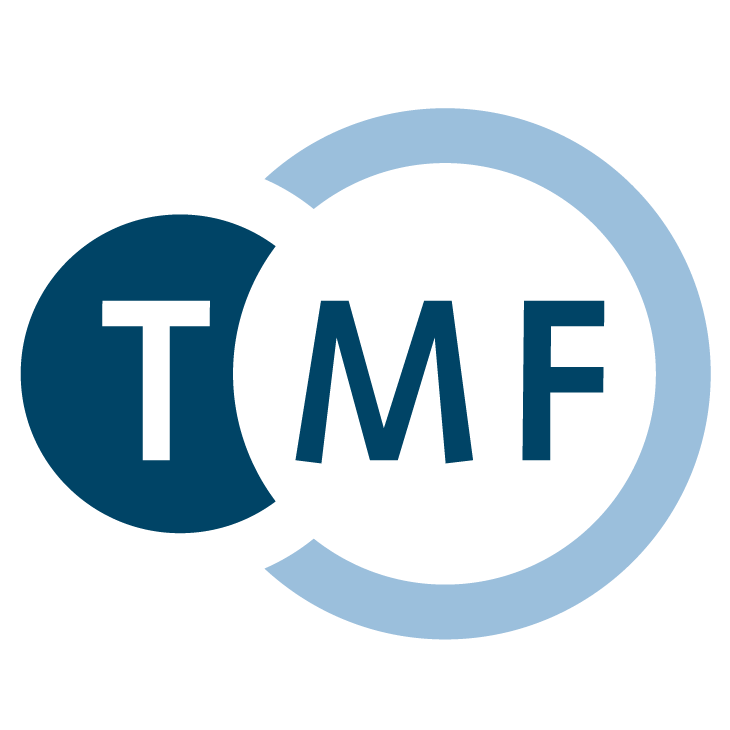
About the TMF e.V.
The TMF is the umbrella organization for networked medical research in Germany. It is the platform for interdisciplinary exchange as well as cross-project and cross-location cooperation in order to identify and solve the organizational, legal/ethical and technological problems of modern medical research. Solutions range from expert opinions, generic concepts, and IT applications to checklists, practical guides, training, and consultation services. The TMF makes these solutions available to the public free of charge.
